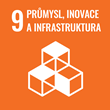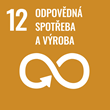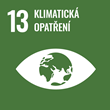
Informace o projektu
Nová strategie sestavování biokatalytických lešení na bakteriálním povrchu pro usnadněné zpracování polymerního odpadu
(CATFFOLDS)

- Kód projektu
- GA25-16845S
- Období řešení
- 1/2025 - 12/2027
- Investor / Programový rámec / typ projektu
-
Grantová agentura ČR
- Standardní projekty
- Fakulta / Pracoviště MU
- Přírodovědecká fakulta
Polymeric wastes, including lignocellulosic residues or plastic waste, are drawing attention as a next-generation feedstock for microbial biotechnologies. Discoveries of new depolymerizing enzymes and recent advances in protein engineering, metabolic engineering, and synthetic biology make biotechnological processing a truly promising approach for upcycling of these materials. Their complex recalcitrant structure nonetheless remains a major obstacle to the economic valorization of waste polymers. Some natural bacteria evolved sophisticated surface-attached enzymatic microstructures - cellulosomes - that facilitate extracellular depolymerization of lignocellulose. However, domesticated microbial cell factories lack such efficient extracellular depolymerizing apparatus and cannot degrade polymeric substrates into fermentable monomers on their own. This bottleneck in the bioprocessing of polymeric residues can be overcome by the assembly of designer biocatalytic cellulosome-like structures on the cell surface. While such structures have been constructed on the surface of yeast cells or some lactic acid bacteria, their assembly on biotechnologically attractive Gram-negative bacteria with desirable properties is an extremely tedious task due to the anatomy of their cell wall and the complicated passage of large enzyme molecules through it. In this project, we aim to verify a new strategy (Fig. 1) of in vivo assembly of bioCATalytic scaFFOLDS (CATFFOLDS) on the surface of the model bacterium Pseudomonas putida, a robust cell factory with the rare ability to utilize and valorize lignin-born aromatics or polyethylene terephthalate (PET)-derived monomers. This strategy may bring the bioprocessing of polymeric waste by bacteria closer to reality.
Cíle udržitelného rozvoje
Masarykova univerzita se hlásí k cílům udržitelného rozvoje OSN, jejichž záměrem je do roku 2030 zlepšit podmínky a kvalitu života na naší planetě.




